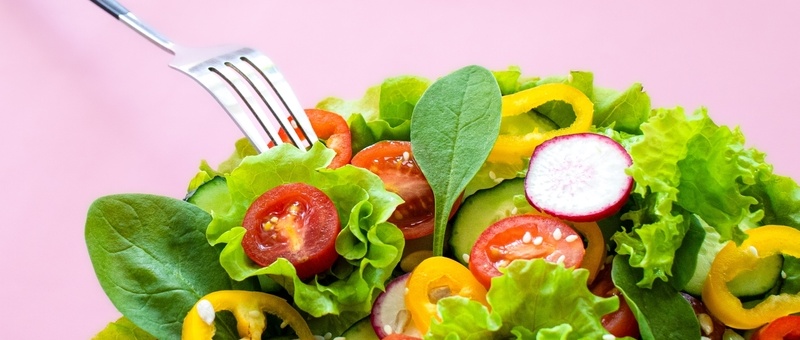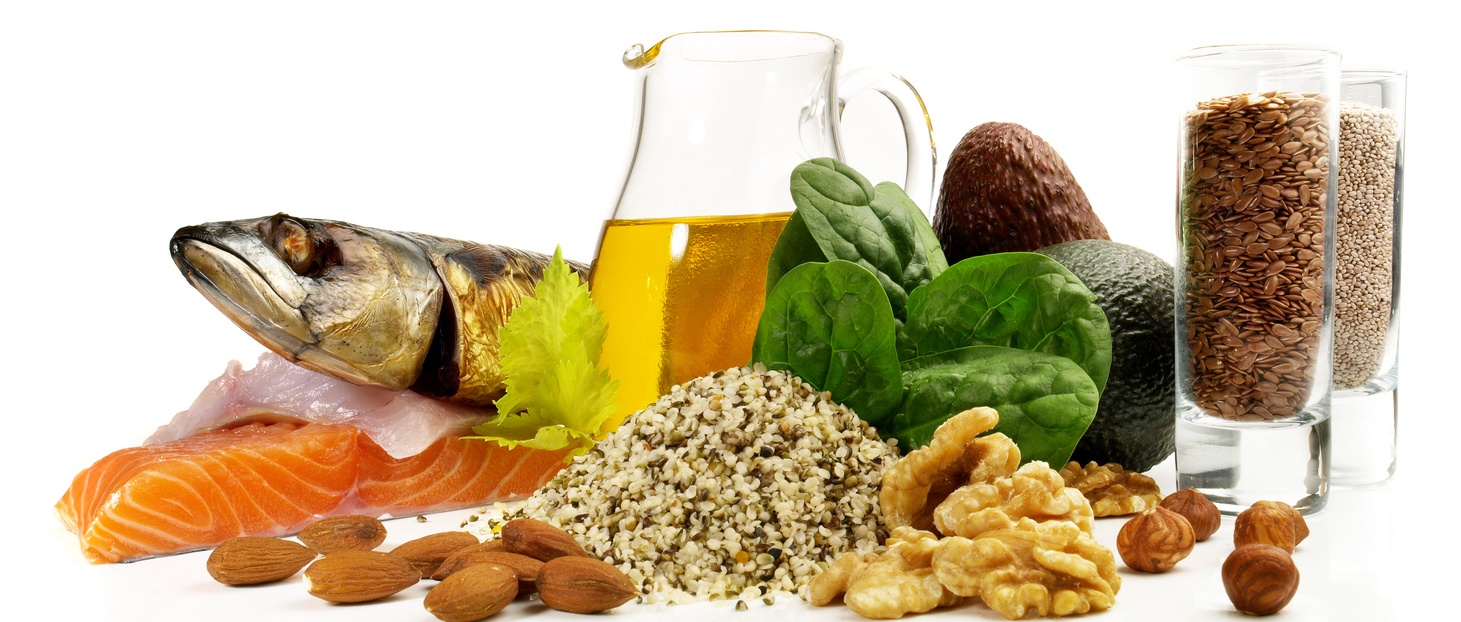
10 essential nutrients you might be lacking
Peer reviewed by Dr Colin Tidy, MRCGPLast updated by Victoria RawLast updated 20 Nov 2025
Meets Patient’s editorial guidelines
- DownloadDownload
- Share
- Language
- Discussion
According to a study published by the Health and Food Supplement Information Service (HSIS), UK diets have become less healthy in the past 30 years. We chatted with health experts about 10 important nutrients you might be missing in your diet.
In this article:
Video picks for Nutrition
In today's world, there's a wealth of information and technology available to help us eat healthily. However, HSIS's study reveals that UK diets are surprisingly low in essential nutrients that play a key role in protecting us against health conditions such as diabetes, heart disease, and cancer.
Continue reading below
Which 10 nutrients are we lacking from our diets?
1. Calcium
Calcium is essential for strong bones and teeth. It also plays a crucial role in heart health, muscle function, cell signalling, and hormone production.
The amount of calcium we consume has decreased by 20% in the past two decades. Around 1 in 7 adults aged 19-64, and teenagers aged 11-18 have calcium intakes below the low reference nutrient intake (LRNI) - the minimum amount you need.
Dr Pamela Mason, a nutritionist and researcher for HSIS says: "These decades of declining calcium and other key bone health nutrients signal a ticking time bomb for the nation’s bone health."
Foods rich in calcium: dairy products, leafy green vegetables - except spinach - calcium-rich soy drinks, fortified bread and flour products, fish with edible bones.
Recommended adult intake: 700 milligrams per day - a 244 gram cup of whole milk has around 300 milligrams of calcium.
2. Vitamins A and D
Vitamin D supports the health and structure of your bones, muscles, and teeth. It also guards against rickets and osteomalacia - a disease that weakens bones.
Vitamin A is needed for healthy vision, skin and mucous membranes - the tissues that line your body's organs and cavities.
Since 2008, there has been a gradual decline in the intake of both vitamin A and vitamin D. On average, 2 in 10 people lack vitamin D in their diet.
While 1 in 10 adults aged 19-64 - and around 2 in 10 teenagers aged 11-18 - have vitamin A levels that are too low.
Foods rich in vitamin A: eggs, cheese, oily fish, milk, yoghurt, fortified low-fat spreads, yellow citrus fruits, leafy green vegetables, liver and liver products - such as pâté.
Foods rich in vitamin D: red meat, oily fish, egg yolks, liver, fortified foods.
Recommended adult intake (vitamin A): 700 micrograms per day for women, 600 micrograms per day for men - 100 grams of spinach has around 469 micrograms.
Recommended adult intake (vitamin D): 10 micrograms per day (vitamin D) - 100 grams of salmon has around 13.1 micrograms.
3. Folic acid
Folate - a B vitamin also known as folic acid - is necessary for normal cell division, red blood cell production, and brain health. A low intake of folic acid can cause tiredness (fatigue), loss of appetite, weakness, and diarrhoea.
Though essential for everyone, it's often associated with pregnancy.
Due to low folic acid levels, 9 out of 10 women of childbearing age in the UK are at an increased likelihood of having a child with neural tube defects - such as spina bifida. All women trying to get pregnant - or who are pregnant - should take 400 micrograms a day of folic acid as a supplement. Some women may need 5 milligrams for certain health conditions, or if taking certain medicines. It's best to talk to your doctor for further advice.
Foods rich in folic acid - brussels sprouts, broccoli, spinach, peas, leafy green vegetables, kidney beans, chickpeas, liver, fortified breakfast cereals.
Recommended adult intake - 400 micrograms per day - 100 grams of raw brussels sprouts has 61 micrograms of folate.
4. Iodine
Iodine is crucial for the production of thyroid hormones which regulate your metabolism and boost your immunity.
Iodine intake has declined by 5% in all age groups over the past 20 years. The percentage of girls and women aged 11-18 with iodine deficiency has risen from 19% to 28%, while in women aged 19-64, it has increased from 9% to 12%
Dr Nisa Aslam, a GP and key contributor to NSIS, says: “This is worrying because iodine is also crucial for the development of healthy bones and the central nervous system for the developing foetus and during infancy."
Foods rich in iodine: eggs, dairy products, shellfish, sea fish.
Recommended adult intake: 140 micrograms per day - 100 grams of wild-caught cod has 114 grams.
5. Iron
Our bodies need iron to make haemoglobin - a protein in red blood cells that carries oxygen around the body. Iron is also crucial for a strong immune system.
In the past three decades, iron intake has dropped by over 10%. Iron deficiency is becoming more common among young women, with nearly half of girls and young women aged 11-18 - and 1 in 4 women aged 19-24 - now having iron intakes below the LRNI.
Dr Gill Jenkins, a GP and prominent HSIS expert, says: “This will be impacting women’s energy levels and overall health, as even a modest iron deficiency can cause tiredness and increased susceptibility to infections.”
Foods rich in iron: red meat, liver, beans, dried fruit, nuts, fortified breakfast cereals, soybean flour.
Recommended adult intake: 8.7 milligrams a day (men 19+), 14.8 milligrams a day (women 19-49), 8.7 milligrams a day (women 50+) - 100 grams of ground beef has around 2.09 milligrams.
6. Magnesium
Magnesium regulates muscle and nerve function, blood sugar, and blood pressure. It's also important for your bones, and cell function, which are essential for proper muscle contraction and maintaining a normal heart rhythm.
40% of teens aged 11-18, 12% of adults aged 19-64, and 13% of adults aged 65 and over are not meeting their recommended daily intake of magnesium.
Foods rich in magnesium: nuts, wholemeal bread, spinach.
Recommended adult intake: 300 milligrams per day (men 19-64), 270 milligrams a day (women 19-64) - 100 grams of almonds has 270 milligrams.
7. Omega-3s fatty acids
Omega-3 fatty acids are essential for maintaining a healthy immune system and reducing inflammation. They're also beneficial for eye, brain, and heart health.
Despite an increase in oily fish consumption among younger people aged 4-39, all age groups are eating less omega-3 fatty acids than recommended. This is due to an intake decline among adults over 40.
Dr Carrie Ruxton, a consultant dietitian with HSIS, says: “Previous research by nutritionist Dr Emma Derbyshire shows that younger generations, women of childbearing age, and pregnant mothers are at particular risk of oily fish and omega-3 shortfalls.”
Recommended adult intake: 500 milligrams - 140 grams of oily fish per week.
Foods rich in omega-3 fatty acids: oily fish such as salmon, mackerel, kippers, sardines, trout, herring.
8. Potassium
Potassium helps regulate your body's fluid balance and supports proper heart function.
Around one third of teenagers aged 11-18 now fall below the LRNI. For adults, this has risen from 16% to 17%, and from 13% to 15% in those over 65. Women are most likely to be potassium deficient, with almost 40% below the LRNI, and 20% among women over 65.
Foods rich in potassium: bananas, Brussels sprouts, parsnips, broccoli, beans, pulses, nuts, seeds, beef, turkey, chicken, fish.
Recommended adult intake: 3,500 milligrams a day - 1 banana has around 487 milligrams.
9. Selenium
Selenium helps protect your cells and tissues, and strengthens your immune system.
Nearly one-third of teenagers aged 11-18, more than one-third of adults, and around one-half of those aged 65 and older are not getting enough selenium. Women are particularly deficient, with two-fifths of adolescent girls, nearly one-half of adult women, and two-thirds of women aged 65 and older having selenium intakes below the LRNI.
Foods rich in selenium: fish, meat, eggs, Brazil nuts.
Recommended adult intake: 75 micrograms per day (men 19-64), 60 micrograms per day (women 19-64) - one Brazil nut has 96 micrograms.
10. Zinc
Zinc is essential for various bodily functions, including metabolism, growth, and development. It plays a vital role in protein, carbohydrate, hormone, and nucleic acid production. It also helps heal wounds, enhances our sense of taste and smell, and protects our bodies from infection.
Zinc intake has declined in some age groups, with around 1 in 5 teenagers aged 11-18 not meeting the LRNI.
Foods rich in zinc: bread, dairy products, cereals - such as wheatgerm - meat, shellfish.
Recommended adult intake: 9.5 milligrams a day (men 19-64), 7 milligrams a day (women 19-64) - 272 grams of chicken has 1.85 milligrams.
Easy ways to boost your nutrient intake
Back to contentsThe HSIS reports that 4 out of 5 people are unclear about what constitutes a healthy diet.
Aslam and Ruxton provide simple advice to help meet your body's nutritional needs and support overall wellbeing.
Consider adding a daily multivitamin and multimineral supplement to your routine.
Incorporate red meat, fish, poultry, nuts, beans, and pulses into your diet for their rich mineral and vitamin content, and increased feelings of fullness.
Add simple sources of fibre to your diet - such as chopped apples or frozen berries on yoghurt, granola, or cereal.
For lunch, a soup or salad full of vegetables is an easy way to incorporate at least one or two of your five daily servings of fruits and vegetables.
For dinner, a vegetable-packed stew or curry is an excellent way to boost your nutrient intake. Pairing your meals with a side of vegetables or salad can also enhance their nutritional value.
Keep in mind that a diet rich in a variety of nutrients can often meet your nutritional needs without the addition of a multivitamin. However, if you do choose to take a multivitamin, it's important to follow the recommended dosage guidelines.
Patient picks for Nutrition

Diet and nutrition
What is choline? The nutrient for your memory, muscles and more
There's a good chance you're not consuming enough choline. This nutrient is needed for many jobs around the body. Find out how choline regulates memory, muscle movement, blood pressure and more - and the choline-rich foods we should all be eating.
by Amberley Davis

Diet and nutrition
7 iron rich foods to add to your diet
If you remember the cartoon character Popeye, you’ll know he was famous for eating spinach to boost his strength. Many of us believe this was because spinach is rich in iron - a nutrient that supports muscle growth. However, relying on spinach alone wouldn’t have done the trick. In reality, there are many other foods with even higher iron content that can better support your body’s needs.
by Victoria Raw
Continue reading below
Article history
The information on this page is peer reviewed by qualified clinicians.
Next review due: 19 Nov 2028
20 Nov 2025 | Latest version
7 Oct 2024 | Originally published
Authored by:
Victoria Raw

Ask, share, connect.
Browse discussions, ask questions, and share experiences across hundreds of health topics.

Feeling unwell?
Assess your symptoms online for free
Sign up to the Patient newsletter
Your weekly dose of clear, trustworthy health advice - written to help you feel informed, confident and in control.
By subscribing you accept our Privacy Policy. You can unsubscribe at any time. We never sell your data.